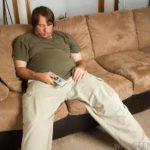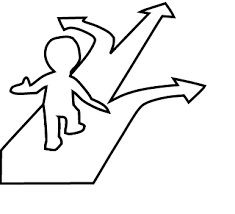Some people say that addiction is not a choice, it’s a disease. As you know, I’m not one of them. But even those of us who believe in choice ask how much volition (intention or will) is involved in the choice to use or not. I think that choice is a lot more complicated than most people think. For now, I’ll skip the philosophical objections to the idea of “free choice.” Sticking to brass tacks, I think that volition interacts with many other factors when we make choices — especially choices about addiction.
 Choices are based on appraisals (interpretations) of situations. People with addictions choose whether to get high or abstain based on appraisals of the quality of the high, the consequences of indulging, the proximity of other people who might approve or disapprove, and so forth. Since our appraisals are determined by factors outside our volition or awareness, especially in a complex situation changing moment by moment, the choice we make in that situation is less determined by our volition and more determined by luck and circumstance.
Choices are based on appraisals (interpretations) of situations. People with addictions choose whether to get high or abstain based on appraisals of the quality of the high, the consequences of indulging, the proximity of other people who might approve or disapprove, and so forth. Since our appraisals are determined by factors outside our volition or awareness, especially in a complex situation changing moment by moment, the choice we make in that situation is less determined by our volition and more determined by luck and circumstance.
 Appraisals are also strongly affected by internal variables: mood states, present emotions, beliefs, (biased) recollections of previous events. But this list doesn’t yet scratch the surface. There is my sense of emptiness and dislocation at this moment, compared with how I think I’ll feel after getting high, compared with how much drug I possess or can afford, in the context of building excitement and/or building anxiety and shame. These “internal state variables,” as psychologists call them, are highly complex and they change from moment to moment. Since that mix of factors will certainly affect one’s choice (e.g., to use or abstain), I can’t see how the choice can be entirely voluntary, entirely an expression of “free will.”
Appraisals are also strongly affected by internal variables: mood states, present emotions, beliefs, (biased) recollections of previous events. But this list doesn’t yet scratch the surface. There is my sense of emptiness and dislocation at this moment, compared with how I think I’ll feel after getting high, compared with how much drug I possess or can afford, in the context of building excitement and/or building anxiety and shame. These “internal state variables,” as psychologists call them, are highly complex and they change from moment to moment. Since that mix of factors will certainly affect one’s choice (e.g., to use or abstain), I can’t see how the choice can be entirely voluntary, entirely an expression of “free will.”
Over the time scale of development, habits evolve and consolidate, creating a spiral of increasingly strong predispositions to seek addictive rewards while alternative rewards become less meaningful. Is there any voluntary choice left after those habits congeal? Yes, I believe there is. Which is how people can slow down or quit. Recovery involves choice, and choice  cannot suddenly be imported into a system that has none. Changes in appraisal, emotion, and social factors strongly influence volition, which influences actions, all of which alters one’s belief in oneself — one’s self-efficacy. That’s why self-talk and help from other people
cannot suddenly be imported into a system that has none. Changes in appraisal, emotion, and social factors strongly influence volition, which influences actions, all of which alters one’s belief in oneself — one’s self-efficacy. That’s why self-talk and help from other people  (friends, partners, books, stories, podcasts) can be so important. Once addicts tune into the possibility of volitional choices, the mechanism underlying volition itself grows in strength and availability.
(friends, partners, books, stories, podcasts) can be so important. Once addicts tune into the possibility of volitional choices, the mechanism underlying volition itself grows in strength and availability.
In my book and elsewhere, I emphasize how synaptic networks can compete with each other, but when any of these networks is activated repeatedly, it becomes stronger, more likely to win the competition. This is the case when addiction arises in development, but also when it declines, replaced by the desire for and belief in alternative outcomes. I also think that addicts temporarily lose the capacity — or at least belief in the capacity — to make reflective judgments, and that loss is underpinned by a loss of connectivity between the prefrontal cortex (“the bridge of the ship”) and the striatum (“the engine of desire”). Then this connectivity can return, gradually, as people recover. Now newly forged connections between these neural systems allow desire and decision-making to work together in the service of future-oriented goals. To put it simply, I see this as the resurgence of volition in a system overwhelmed by habit.
There are many other goads, nudges, constraints, and impacts on volition — the voluntary component of choice. Most important are the psychological mechanisms of “now appeal” and ego fatigue. The passage of time also has enormous impact on volitional choice. Also critical are the roles of impulsive and compulsive action tendencies. How much volition  is available during the impulsive phase of addiction, as one’s imagined future slides down a sort of chute into the “now”? Some, I think, but not much. Once the compulsive stage of addiction is reached, how much volition is present? Now action is put in motion before one is even aware of making a choice. Still, compulsion is not abnormal or pathological. When we examine more mundane decisions, like whether to check that the stove is turned off, it’s clear that volition and compulsion mix together, competing and cooperating, as we make choices. It’s not mandatory to recheck the stove.
is available during the impulsive phase of addiction, as one’s imagined future slides down a sort of chute into the “now”? Some, I think, but not much. Once the compulsive stage of addiction is reached, how much volition is present? Now action is put in motion before one is even aware of making a choice. Still, compulsion is not abnormal or pathological. When we examine more mundane decisions, like whether to check that the stove is turned off, it’s clear that volition and compulsion mix together, competing and cooperating, as we make choices. It’s not mandatory to recheck the stove.
According to a developmental-learning model (like mine, or that of Maia Szalavitz), interpersonal, social, emotional, and personality factors all contribute to a developmental trajectory that continues to adjust itself, to consolidate itself. So we don’t have to waste another moment conceiving of addiction as a disease. Using personal reports, psychological research, and neurobiological findings as our sources, we can achieve a far more detailed understanding of choice in the context of development, with its phases of relative stuckness and relative flexibility. We can also study the links between brain changes and environmental forces, to increase our knowledge of how addiction develops and how it can be overcome.

Leave a Reply